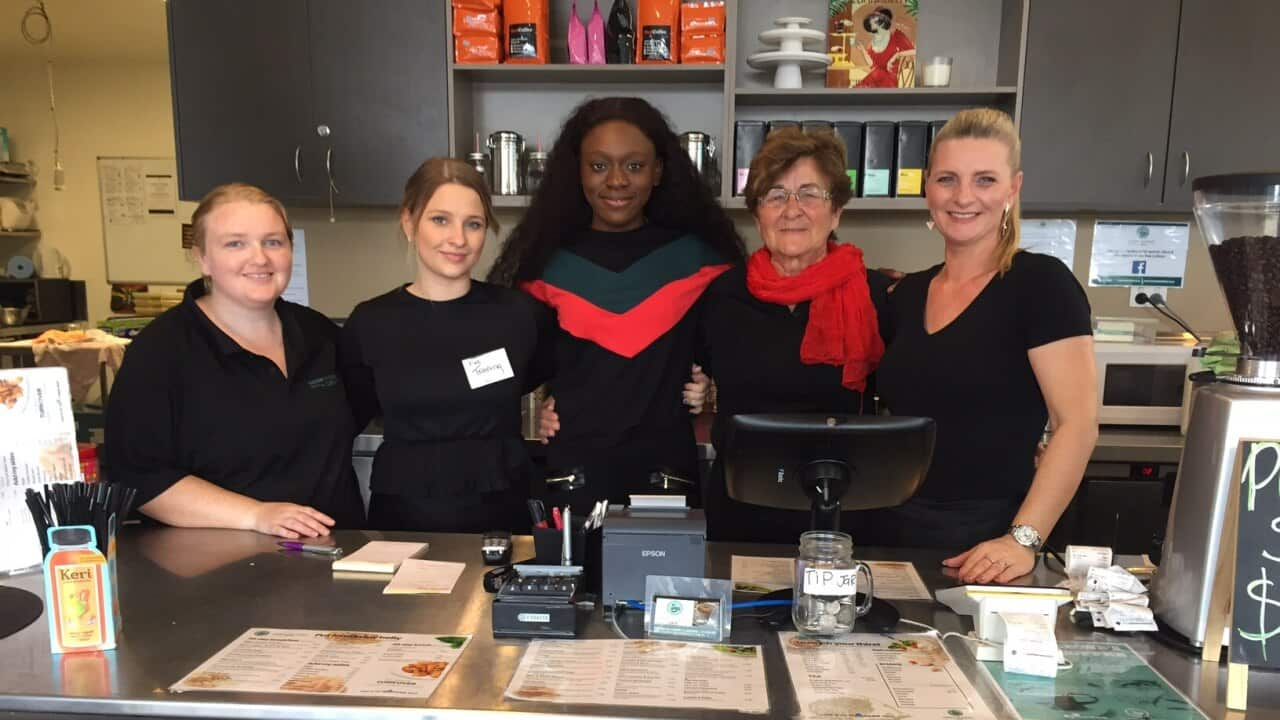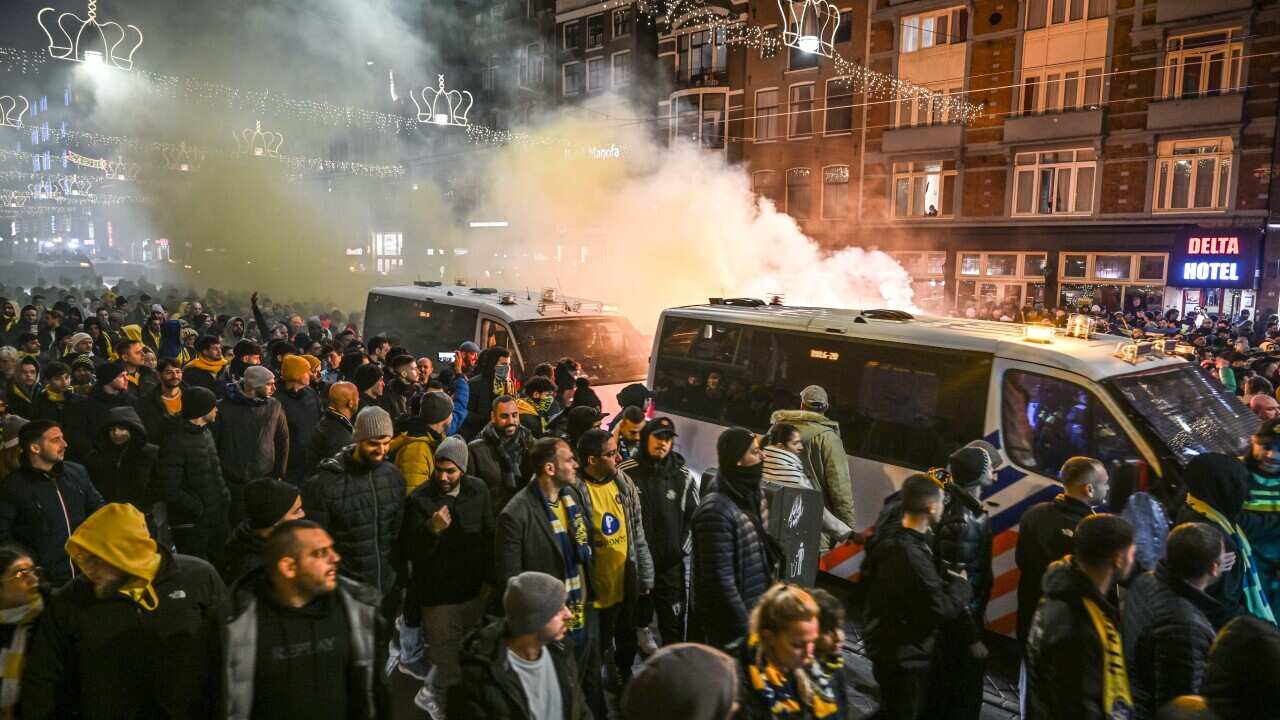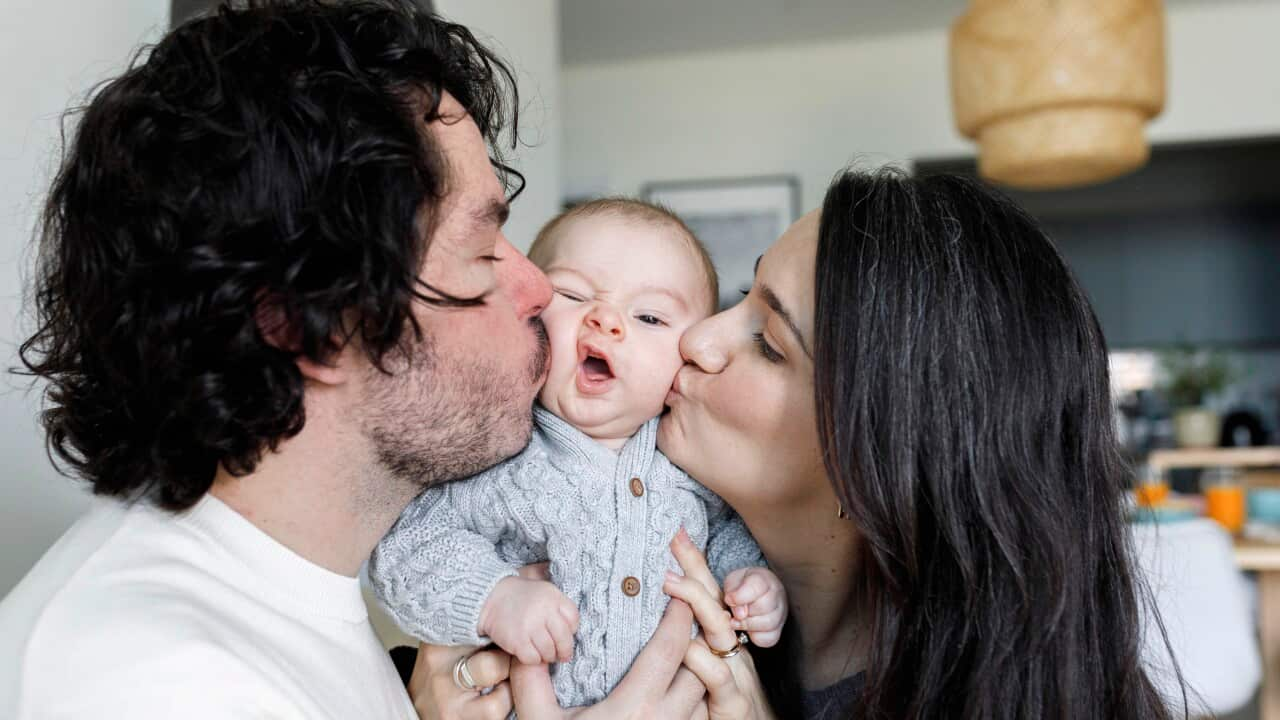This year’s theme is #WithRefugees, a call to protect the safety and rights of refugees.
19-year-old Pemba Tshulembo’s journey as a refugee began on the day her father’s political rivals stormed into his funeral.
“The reason why I left Congo was because of my dad’s political rivals. And so after his death we were basically forced to leave Congo because it wasn't safe for us anymore. On the day of his funeral there were people there to cause fights. But it wasn’t safe for us because we were really young.”
Pemba had already lost her mother in a car accident.
She and her three siblings had no choice but to leave the Democratic Republic of Congo for Kenya where they stayed for 5 years.
“Well, it wasn’t still safe but it was better than DRC. Once my cousin got attacked and we believe it was from the people that were still after us so we were not really allowed to go outside and play because we never know one of us may be kidnapped or something bad could happen to us.”
Pemba was over the moon when she received news that she could resettle in Australia even though she knew nothing about the country.
“It was like a new life for me. I felt like it was an opportunity that… it was just so good…like…I even cried, I couldn't believe that it’s me here.”
Mahir Momand’s family was forced to flee to Pakistan from Afghanistan when he was a baby after his father, an Afghan military general, was jailed by the Russian army.
He was determined to make a difference in his home country where unemployment was pervasive.
He resettled in Canada, but despite the comfort of living there Mahir felt he still had unfinished business back home.
"We were also helping farmers not to grow opium and grow things like saffron and majority of the opium funds were going through the Taliban so we were cutting the Taliban’s revenues by helping farmers grow non-opium crops. Because the Taliban saw our work in direct contradiction and conflict to their operations and had started attacking my colleagues and myself which resulted in me being forced to leave Afghanistan.”
Mahir returned to Afghanistan and started a microfinancing business to help people become financially self-sustainable.
“When I decided to go back to Afghanistan, my migration case officer thought there was something wrong with my brain because they couldn’t comprehend as to how I would leave a beautiful country like Canada and go back to Afghanistan. My roots were always in Afghanistan. I have always in the past wanted to go back and be able to contribute to the development of that country so that was the reason I kept going back.”
But the violence became too much after several of Mahir’s colleagues were killed by the Taliban.
He was also attacked in a separate incident.
Fearing for his life, Mahir had to flee his beloved home country again.
This time, he was offered to resettle in Australia.
“I was diagnosed with PTSD when I arrived after that incident in Australia. It took a toll on my life. I was not able to remember short term things. It took me like a long, long time to get back to somewhat normal.”
With his expertise in microfinancing, Mahir now leads the Thrive Refugee Enterprise, an NGO that helps refugees and asylum seekers start or grow their own business.
“We receive a large number of refugees who come to us and tell us outright that they’re not happy to be on Centrelink benefits because this is not culturally aligned to their values. They come from backgrounds where the government have not been providing them with any support and therefore are not people who would just be sitting home and receiving Centrelink benefits. So, they want to get out of that situation and become economically active.”
He says Australia has accepted over 880,000 refugees in the past seven decades.
Through Refugee Week, the Refugee Council of Australia hopes to draw attention to the needs of refugees worldwide and recognise their contributions to Australia.
“People who have been refugees according to statistics from the Australian Bureau of Statistics are more likely to establish and run their small businesses employing other people than people from any other migration category or Australian-born people. In the long run, Australia benefits from those humanitarian acts.”
Some of those former refugees are now seen as valuable assets to the Australian economy.
One prominent example is Sir Frank Lowy, the founder of Westfield.
With close to a million refugees resettled in Australia over the last seventy years, the country is expecting to welcome around 18,000 more in the coming year.
“Many of those who come to the country as refugees are under the age of 25 and so it's a significantly younger population of refugee arrivals than we’re seeing in the general Australian population and so these people have decades of contribution to make to Australian society.”
Queensland-based provides a range of resettlement services to help bring refugees back on their feet.
Chief Executive Officer Gail Kerr says the organisation supports refugees who speak little English and have no former job experience to develop new skills in paid work placements.
Gail Kerr explains how , a social enterprise established by Access Community Services, is turning every-day skills into job opportunities.
“So, we’ve worked with a group of women to develop 5 key spices and then we’ve helped those women develop a business model using those spices but it’s also taking women then through the process of how you might start your own business or working in a food environment, what’s the health and safety issues and then helping them find the career and employment pathway that is associated with the food industry or generally just building their confidence to go for jobs out in the market place.”
Many of the refugees are women who were forced to leave home under extremely dangerous circumstances.
“The situations that they’ve come from where they’ve often seen husbands killed in front of them, had to flee refugee camps with no notice, gather children together and run for their lives.”
“This is a social purpose café and we run it as a business but the people that come through and train are those people that are looking for a job and we use that as a realistic training environment - teaching them the skills of working in a café, making coffees, customer service, and again it’s all about developing language skills and real pathways about what the world of work looks like and how do you go for those jobs once you have got those skills in place.”
It’s been two and a half years since Pemba arrived in Logan.
She went into Year 11 hardly speaking any English, but through sheer willpower, she quickly excelled in her classes.
She’s since graduated from high school and is now training to become a model.
Pemba says she is lucky to have had a chance to work at Harmony on Carmody and save towards her university degree.
“It’s helped me build my confidence. It’s helped me know how to talk to people, you know, know people more, and it’s also helped me save like…I’m not half way but almost there saving up for my uni.”
This Refugee Week, hundreds of events will be held across Australia in support of refugees around the world.
It's a chance for refugees to feel welcome and accepted in the country they now call home, says Pemba.
“Refugee week is really important because it gives them an opportunity to feel loved, to be given the support. Most of them have been traumatised throughout their whole entire lives. And they’re going through hell and all they need maybe is just someone to tell them something good.”







